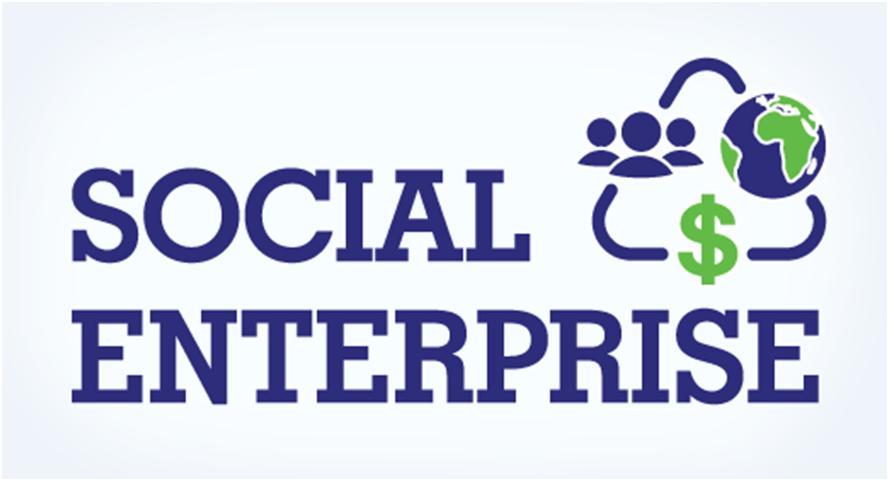The term “social enterprise” is everywhere these days. And it’s no surprise. While there’s been a long tradition of social impact work in the nonprofit sector, there’s a growing wave who want to see the social impact stretch beyond the traditional confines of the nonprofit space.
This is a good thing. But if there’s a Circle of Trust that encompasses the social enterprise sector, the vast majority of nonprofits are sitting outside it.
Let me explain. The Social Enterprise Alliance (SEA), a thought leader in the movement, describes social enterprise as the “missing middle” sector that straddles the area between the business, government and nonprofit sectors. While social enterprises can be for-profit or not-for-profit, SEA states that a social enterprise must have “commercial activity” as a “strong revenue driver.”
Pardon me, but why is commercial activity as a strong revenue driver a must? This suggests that the vast majority of nonprofits, which exist to solve our most pressing social needs, don’t qualify because their revenue comes from philanthropic or government sources. As a nonprofit guy, I’m not against nonprofits finding new revenue streams. I just don’t see how “commercial activity” is worthy of the social enterprise litmus test.
Here are a few reasons why all socially-driven nonprofits deserve to be in the social enterprise Circle of Trust:
The nonprofit sector provides 99 percent of the impact.
Early in my career I worked for the Big Brothers Big Sisters mentoring program. Big Brothers Big Sisters, founded in the early 1900s, has bettered the lives of hundreds of thousands of children across the U.S. Big Brothers Big Sisters is driven by philanthropic and government dollars – not commercial activities.
I did a little digging and found that there are nearly 170,000 human-services nonprofits in the United States. That’s not even counting tiny organizations (less than $200K) that don’t have to complete a full Form 990 with the IRS, or the hundreds of thousands of healthcare, arts and education-focused nonprofits.
Compare that with 1,300 B Corps and 200 Social Enterprises counted in a preliminary census. Clearly, there are more than 200 companies that self-identify as social enterprises, but whatever the actual number, it pales in comparison to the number of nonprofits with a dedicated social purpose.
Nonprofits are the purest form of social enterprises.
The beautiful thing about 501(c)3 nonprofits is that they are mandated, by law, to exist solely to serve their charitable purpose. There are no shareholders seeking ROI and every penny of profit must be re-invested into the mission. Further, since nonprofits in the U.S. are tax-exempt, there are tight regulations surrounding transparency and uses of funds.
Nonprofits are also required to identify their Board of Directors and highly compensated employees. Further, the Better Business Bureau and major foundations expect nonprofits to undergo an independent audit. And websites like Guidestar provide a window into nonprofit finances and management practices.
For-profit social enterprises have virtually none of these obligations to transparency. Since we’re talking about the Circle of Trust, nonprofits would be the most trustworthy in the Circle!
The best “commercial activity” is often philanthropy or (gasp!) government funding.
During my four years at The Mission Continues we grew rapidly – from $250K in 2008 revenue to $7 million in 2011. We didn’t earn a dime from commercial activities. Our growth was made possible by philanthropists who shared our vision of ensuring that returning military veterans were welcomed home as civic assets.
Nonprofits also play a key role in ensuring government safety net obligations are distributed into communities. It’s not practical for the government to reach every vulnerable citizen in every community, so nonprofits serve as a key partner.
But still, I get it.
SEA and other “commerce for good” movements are on to something important. The firm I work for, Y Scouts, is a registered B Corp and an active contributor to the Conscious Capitalism movement. For-profit companies often have fewer constraints to provide innovative social good. Our world will continue to improve with more for-profit social enterprises.
And nonprofit social enterprises need to continually find new and sustainable funding/revenue models to increase their impact. Nonprofits sometimes are too ingrained in funding models of the past and benefit from a good kick to spur innovation. I’ve been amazed by Goodwill’s success in selling discount clothing to help people find jobs. And I don’t think I’ve ever passed by a Girl Scout Troop without buying 5 boxes of Samoas.
I love the innovation in the social sector. But please don’t tell me that a nonprofit isn’t a social enterprise because it’s not selling a product or service.
I propose a big-tent definition for social enterprise:
A social enterprise is any entity that exists with the sole purpose of benefiting humanity.
This includes for-profit companies that exist to fulfill a social purpose as well as commercially-driven nonprofits. But it also includes the hundreds of thousands of donation and government-fueled nonprofits working to solve our most pressing social challenges.
—————-
Paul Eisenstein is the Social Enterprise Practice Leader for Y Scouts, a leadership search firm that helps nonprofits, social enterprises and innovative companies find exceptional leaders. Paul joined Y Scouts in 2012 and works with social enterprises to identify and hire leaders who not only have deep functional expertise but are aligned with an organization’s unique purpose, values, and culture and possess the characteristics of truly exceptional leaders.
Thanks for reading CPA Practice Advisor!
Subscribe Already registered? Log In
Need more information? Read the FAQs
Tags: Nonprofit




